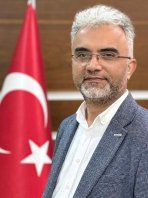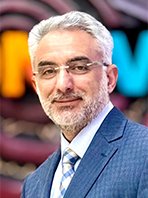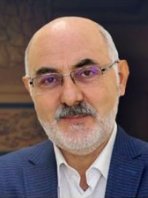Metafor, genellikle bir dilin en zengin tarafını temsil eder.
Metafor, bir dilin belki de doğasında olan en gizli hazinelerine işaret eder.
Metafor sayesinde en basit ve yaygın kullandığımız kelimeler bile ("kafa”, "ev”, "hayvan” gibi) bir ölçüde bağlama göre seçilecek olan ve kolay kolay reddedilemeyen veya kaçınılmayan alt anlamlara sahiptirler.
Metafor, belki de kelimelerin bir başlarına bırakılamayacaklarını gösteren başlıca işarettir.
Birçok açıdan bakıldığında bir dilin zenginliğini metaforların zenginliği ile doğru orantılı değerlendirmek mümkündür.
Metafor, gizli ve açık olanı aynı potada buluşturur, tarihsiz ve tarifsiz kesintileri uyumlu ve tutarlı bir boyuta taşır.
Metafor, hiçbir ayrıma tabii tutmaksızın ve süreklilik halinde özgün bir biçimde insanlığın ortak bilincinin harika bir birikimi, insan denen varlığın temsilcisinin zihin dünyası ve potansiyelinin olağanüstü bir tasarım mucizesidir.
Bu tasarım mucizesini anlamayan Ebu Cehil'in ayın yarılması mucizesini (şakk-ı kamer) sihirle yorumladığı gibi direkt inkâra yönelir.
Metaforun olmadığı yerde büyük bir boşluk oluşur ve orayı şeytan doldudur.
Mevlana gibi bir bilgeyi metaforu anlamayan sığ insanlar anlayamazlar.
Mesnevi 5. Kitaptan metaforun zenginliğine ve ehemmiyetine dair sığ, basit ve cahil insanların en çok başvurduğu hikâyeyi irdeleyelim.
"Kabak Metaforu” ile bakın Mevlana Celaleddin Rumi neler anlatıyor!
Metaforları sıralayalım:
"Halayık”, Allah'a kul olduğunu kabul edip dünyada misafir olduğunu bilen ve asıl hayatın ahiret olduğuna inanan, nefsin sınırsız taleplerine rağmen dünya nimetlerinden bir ölçü dâhilinde istifade etmesini bilen ve bu sınırlılığın sınırsız bir baki karşılığı olduğu inancıyla mutlu olan, bahtiyar insanı,
"Ev sahibesi kadın”, nefsinin bütün taleplerini sınırsız yerine getirmeye hırsla çalışan, ahirete inanmadığı için her şeyi bu dünyada yaşamaya çalışan vücudu ve nimetler nefsin sınırsız isteklerine cevap veremediği için bir türlü tatmin olmayan bedbaht insanı,
"Eşeğin aleti”, insana imtihan için verilmiş acımasız bir teknik direktör olan nefsin sınırsız arzu, istek ve hırslarını,
"Kabak”, insan nefsinin sınırsız ve helak edici hırs, arzu ve isteklerine dinler/peygamberlerce konulan sınıra/ölçüye işaret eder.
"Senin en zararlı düşmanın nefsindir” sözüyle Hz. Peygamber (s.a.v.) kabağın/nefse sınır koymanın ehemmiyetine işaret eder.
Hz. Mevlana Celaleddin Rumi'nin özellikle zirvedeki bölüm olan Mesnevi'nin 5. Defterini metaforun derinliği bilinciyle bir kez daha okuyun.
Unutmayın!
Allah Kur'an'da, Resulü (s.a.v.) sünnetinde metafora sıklıkla başvurur.
Metaforu anlamadan Allah'ıda, Elçisini de derin insanları da anlayamazsınız.
Metaphor
(Mevlana/Mesnevi/Pumpkin Metaphor)
Metaphor usually represents the richest side of a language.
Metaphor points to the most hidden treasures of a language, perhaps inherent in its nature.
Thanks to metaphor, even the simplest and most commonly used words (such as "head”, "house”, "animal”) have sub-meanings that are chosen according to context to some extent and cannot be easily rejected or avoided.
Metaphor is perhaps the main sign that shows that words cannot be left alone.
When viewed from many perspectives, it is possible to evaluate the richness of a language in direct proportion to the richness of its metaphors.
Metaphor brings together the hidden and the obvious in the same pot, carries ahistorical and indescribable interruptions to a harmonious and consistent dimension.
Metaphor is a wonderful accumulation of the common consciousness of humanity, an extraordinary design miracle of the mental world and potential of the representative of the being called human, without any distinction and in a continuous manner.
Those who do not understand this design miracle directly turn to denial, just as Abu Jahl interpreted the miracle of the splitting of the moon (shakk-i kamer) with magic.
Where there is no metaphor, a great void is created and the devil fills that space.
A wise man like Mevlana cannot be understood by shallow people who do not understand metaphor.
Let's examine the story from the 5th Book of Masnavi that shallow, simple and ignorant people most often refer to regarding the richness and importance of metaphor.
Look at what Mevlana Celaleddin Rumi is telling with the "Squash Metaphor"!
Let's list the metaphors:
"Halayık”, a fortunate person who accepts that he is a servant of Allah and knows that he is a guest in this world and believes that the real life is the afterlife, knows how to benefit from the blessings of the world within a certain limit despite the limitless demands of the soul and is happy with the belief that this limitation has an unlimited eternal reward,
"Housewife woman”, a miserable person who passionately tries to fulfill all the demands of his soul without limits, who tries to live everything in this world because he does not believe in the afterlife and cannot be satisfied because his body and blessings cannot meet the limitless demands of the soul,
"Donkey's tool”, the limitless desires, wishes and ambitions of the soul, which is a ruthless coach given to man for testing,
"Kabak” refers to the limit/measure set by religions/prophets for the limitless and destructive ambitions, wishes and desires of the human soul.
With the words "Your most harmful enemy is your soul”, Hz. The Prophet (pbuh) points out the importance of setting limits on the squash/self.
Read the 5th notebook of the Masnavi, especially the top section of Hz. Mevlana Celaleddin Rumi, once again with the awareness of the depth of the metaphor.
Remember!
Allah frequently uses metaphor in the Quran and in the Sunnah of His Messenger (pbuh).
Without understanding the metaphor, you cannot understand Allah, His Messenger or deep people.


























